The Americas Archive
Free Newsletter
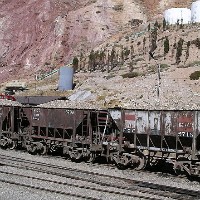
Peruvian Justice Minister Juan Jiménez’s appearance before the Inter-American Commission on Human Rights last week marked the latest challenge to President Ollanta Humala’s strategy of marrying mining-based growth with social development. Jiménez faced the commission Saturday to dispute a law proposed last year by local organizations concerned about environmental impacts from the $4.8 billion Conga gold and copper mine. Later this week, the country’s Constitutional Tribunal will also consider the constitutionality of a decision by the president of Cajamarca province, where the Conga mine is located, to declare the project “unviable.” Local communities argue that the mine will empty several […]
Venezuelan President Hugo Chavez recently returned home after his latest trip to Cuba to seek cancer treatment. In an email interview, H. Michael Erisman, a professor of international politics and Latin America at Indiana State University specializing in Cuban foreign relations, discussed Cuba-Venezuela relations. WPR: What is the recent history of the Cuba-Venezuela relationship? H. Michael Erisman: In a nutshell, the relationship has been extremely close in both the bilateral and the larger multilateral dimensions. The multilateral dimension refers to Cuban-Venezuelan cooperation in hemispheric affairs. The centerpiece project here is the Bolívarian Alliance for the Americas (ALBA), which seeks to […]
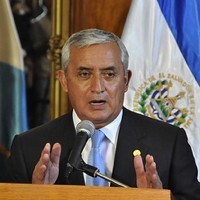
On March 24, Central American leaders will take a decisive step toward opening the debate on drug decriminalization by convening in Antigua, Guatemala, to discuss alternatives to the foundering war on drugs. The meeting, proposed by Guatemalan ex-general and newest member of the Central American presidents’ club Otto Pérez Molina, follows a five-country tour by his vice president to rally support for frank dialogue. It also comes on the heels of regional visits by U.S. Secretary of Homeland Security Janet Napolitano and Vice President Joe Biden to reinforce the United States’ commitment to anti-crime cooperation and rebuff the possibility of […]
Mine-resistant, ambush-protected vehicles, or MRAPs, have saved countless lives in the wars in Afghanistan and Iraq, as their special design absorbs the effects of mines and improvised explosive devices. The U.S. military began ordering almost 28,000 of these heavily armored trucks in 2007, with most of them sent to Iraq, where the Army and Marine Corps put them to use clearing the way for convoys navigating risky terrain. But as the military transitions away from these stability operations and toward a leaner force that will fight shorter conflicts from greater distances, the question of what to do with these vehicles […]
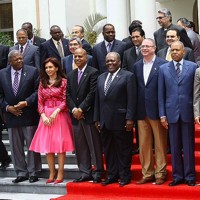
The recent collapse of authoritarian regimes in the Middle East and North Africa during the Arab Spring provides a backdrop to reflect on Latin America’s democratic transitions from authoritarian rule during the “Third Wave of Democratization” as well as to review the current health of the region’s democracies. Compared to the paucity of democracies in Latin America at the start of the Third Wave in the mid-1970s, the near-universal presence of democratic regimes today highlights the tremendous democratic progress made in the region over the past three-dozen years. Nevertheless, within this broader regional success exists considerable country-by-country variation in democratic […]
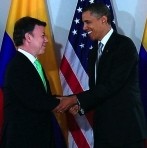
BOGOTA — Government and economic think-tank estimates may differ on the potential economic benefits of the recently approved Colombia-United States Free Trade Agreement, but one of the FTA’s goals has already been achieved: It has allowed the United States to reaffirm support for the Colombian government, still waging a nearly 50-year-long civil war against the FARC guerrilla insurgency and a two-decade battle against drug cartels. Clyde Prestowitz, president of the Washington-based Economic Strategy Institute, described the trade agreement as “a geopolitical tool in the guise of an economic deal.” For Tim Stater, an economic counselor at the United States Embassy […]
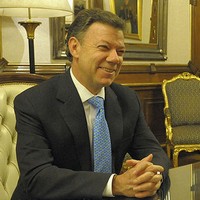
Sandwiched between OPEC members Ecuador and Venezuela, Colombia has for decades looked like an Andean misfit because it was not a major oil exporter. But when Venezuela’s foreign minister visited Bogotá in November, he reportedly asked his counterpart, “When is Colombia going to join OPEC?” Quietly, Colombia has become the fourth-largest oil producer in Latin America, after Venezuela, Mexico and Brazil. Today, Colombia produces nearly 1 million barrels of oil per day (bpd), almost double its output in 2005. By 2015, Colombia’s oil minister expects the country to produce 1.5 million bpd. Improved security is the most obvious reason for […]
As the U.S. soldier accused of slaughtering 16 civilians in Afghanistan on Sunday makes his way back to the United States, the base where the suspect hails from is coming under scrutiny for its controversial record when it comes to military mental health. The soldier in custody, described as a 38-year-old staff sergeant who had served three tours in Iraq before arriving for his deployment in Afghanistan in December, was previously based at Joint Base Lewis-McChord near Tacoma, Washington. He had reportedly suffered from a traumatic brain injury earlier in his career, and his attorney has suggested that a post-traumatic […]
Spain’s Repsol and China’s Sinopec announced the discovery of a huge oil reserve off the coast of Brazil late last month. In an email interview, Mark Langevin, the director of the consulting firm Brazil Works, discussed Brazil’s offshore oil resources. WPR: What is the size and scope of Brazil’s offshore oil finds, and where do efforts to develop them stand? Mark Langevin: For decades Brazil and its national oil company, Petrobras, struggled to achieve energy security to fuel national development and a stable balance of trade. In 2006 this struggle ended with the discovery of a 4 billion to 8 […]
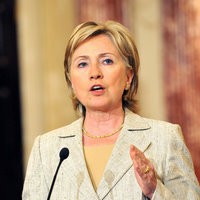
Demands on the State Department may be growing but, if last week’s congressional hearings are any indication, the State Department’s coffers will not be. Even longtime champions of robust international affairs funding like Sen. Patrick Leahy have warned the secretary of state that the $54.7 billion diplomatic and development budget requested by the Obama administration — a modest increase over last year — is unlikely to win full funding. Though increased funding for foreign affairs may well make sense, its chances are remote at best. Merely doing more with less may seem like the best approach under conditions of fiscal […]

For more than three years, China has been gradually implementing a strategic plan to internationalize its currency, the yuan, with a central element of this strategy being to increase the yuan’s role in China’s cross-border trade settlement. To date, these efforts have been strikingly effective, as the “people’s currency” was used to settle nearly 10 percent of China’s international trade in 2011, up from essentially zero in 2009. Last week, it was reported that China is poised to take another significant step in promoting the yuan’s use in global trade settlement by extending yuan-denominated loans to the other BRICS nations: […]
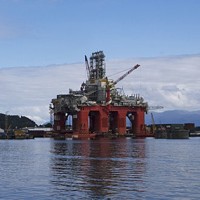
If you’re looking for a good example of an oxymoron, or at the very least of a counterintuitive situation, nothing works better than the famed “resource curse.” The idea that great natural wealth might in fact contribute to keeping a country poor has captured the public imagination precisely because it helps explain a phenomenon that is one of the great paradoxes of our time: Countries blessed with fabulous riches are often also cursed, perhaps inevitably, with grinding poverty. But the phenomenon with the catchy title deserves a closer, critical look, because recent evidence suggests that the potion for breaking the […]
U.S. Defense Secretary Leon Panetta will visit Chile in April on what will be his first trip to Latin America as secretary. In an email interview, Gregory Weeks, an associate professor of political science at the University of North Carolina, Charlotte, discussed U.S.-Chile Relations. WPR: How have U.S.-Chile security relations evolved since Chile’s return to democracy? Gregory Weeks: In the years immediately after Chile’s political transition in 1990, the bilateral relationship focused very little on security, and even that was mostly centered on humanitarian missions as well as arms acquisitions, such as the purchase of F-16s. For the most part, […]
